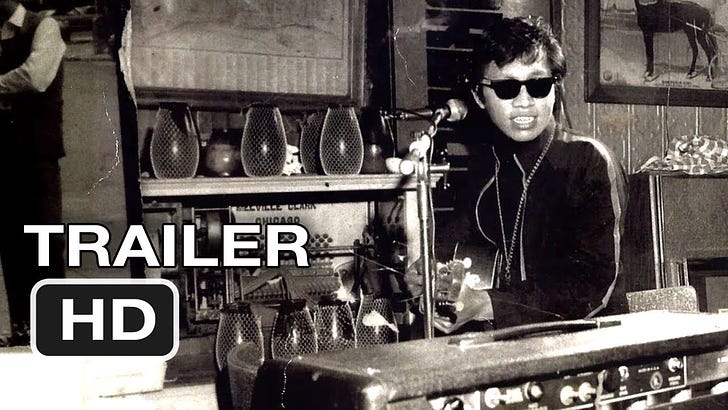🔅 What's AfDB's Anti-Corruption Fund Up To?! & Headway in The Fight Against HIV
Plus, Rodriguez's Odyssey To South African Fame & An Illustrated Guide to French Colonialism in Niger
Photo of the day: Ggaba Beach, Uganda.

Markets:
🔴 Nigerian SE: 65,210.49 (-0.18%)
🔴 Johannesburg SE: 76,974.26 (-1.01%)
🟢 Ghana SE: 3,050.73 (+0.13%)
🔴 Nairobi SE: 103.23 (-0.74%)
🟢 US S&P 500: 4,481.67 (+0.39%)
🔴 Shanghai Composite: 3,178.43 (-0.34%)
MTN's Fintech Cash-In: South African telecom giant MTN just cashed in on its financial technology and payments arm in a big way. The company announced a 7.1% rise in half-year earnings, and that it had signed an agreement with Mastercard to sell a minority stake in its fin-tech arm. That stake is valued at around 5.2 billion dollars—almost 40% of MTN’s total market value. The move should help MTN weather the storm of the crippling power cuts that have forced the company to invest in backup power systems.
*Data accurate as of the close of markets across the continent
Brief & Bright: Africa's Top Five Highlights
AfDB's Anti-Corruption Fund: Just Hanging Around Doing Nothing
The African Development Bank (AfDB) has a lot of money to spare—it’s triple-A rated, has authorised capital of $250 billion, and has 54 African member countries and 27 non-regional members. But here’s a question: what’s been happening with the $55 million set aside for an anti-corruption fund? The fund was launched seven years ago with great fanfare, but guess what? It’s still not operational and hasn’t disbursed a single penny. NGOs who applied for grants from the fund have been told it’s not yet up and running. So, what’s the deal, AfDB? The fund was supposed to give grants to African enforcement agencies, tax authorities, educational institutions, and civil society groups involved in fighting corruption, but seven years later, it’s just…hanging around doing nothing.
The Story of Rodriguez: From Detroit Bars to South Africa Legend to Oscar Glory
Detroit musician Rodriguez never made it big in the US, but he sure made it big in South Africa—so big that his story was turned into an Oscar-winning documentary in 2012. His journey to the big time was, as The New York Times put it, “a real-life tale of talent disregarded, bad luck and missed opportunities.” After Rodriguez's first two albums failed to find an audience in America, they found a huge following in South Africa, where the folk-rock singer’s songs became the “soundtrack to [South Africans’] lives.” Rodriguez didn’t know how popular he was there because the country was cut off from the rest of the world due to apartheid. In the mid-90s, two South Africans started searching for Rodriguez, and eventually found him, still living in Detroit. He went on a tour of South Africa, and his story was turned into the Oscar-winning documentary Searching for Sugar Man in 2012. Rodriguez died last week at 81, but his music and story will live on. Check out the trailer for the film above.
Uncovering Nigerian History: One Newspaper at a Time
It’s a history project like no other: a Nigerian startup is attempting to digitize every newspaper published in the country since 1960. This is no small feat: Archivi.ng has collected 50,000 pages of newsprint and needs $100,000 to complete the project. The papers contain the stories of Nigeria’s 15 leaders, five military coups, a civil war, and a brutal dictatorship, and the team behind the archive hopes it will help Nigerians remember their history. But the project isn’t without its challenges: navigating Nigeria’s intellectual property laws has been difficult, and some publishers have been reluctant to give permission for their content to be reproduced. Despite the obstacles, the team is determined to make sure that the stories of Nigeria’s past are not forgotten. Lawal, the founder of Archivi.ng, believes that the most important aspect of the process, is understanding that not a single story, but a series of events, shaped the present. You can donate to Archivi.ng by following this link.
Colonialism and the Niger Coup: An Uneasy Alliance
French colonialism in Niger has a pretty shady past, with brutal military campaigns. After 1960, when Niger gained its independence, the French didn’t exactly pack up and leave. Instead, they stuck around to provide military muscle and sign lucrative mining deals. Fast-forward to the present day, where the July 26 coup is the latest in a string of coups since 1960. Al Jazeera has a short and interesting illustrated breakdown of the history. You can check it out here.
Genetic Resistance to HIV: A Rare Occurrence?

Scientists have discovered a new genetic variant in people of African ancestries that appears to restrict HIV replication after an infection sets in. Though the research is still in its early stages, it’s a huge step forward for HIV research, which has long neglected African populations. This new variant could also lead to the development of new antiviral drugs—but, before we get too excited, researchers are quick to point out that genetic resistance to HIV is likely the result of a complex interaction between two or more variants, rather than just one lucky quirk. Plus, there are plenty of other systemic and social factors at play when it comes to the variability of HIV infections. Still, this new discovery is a hopeful sign that scientists are finally making some headway in the fight against the virus.
Food for Thought
“Do not spend the evening in a house where you cannot spend the night.”
— Ethiopian Proverb.
Are we hitting the mark?
Enjoying Baobab's updates? Spread the joy and share us with friends and colleagues — we'd be thrilled to have them join!
Feedback or thoughts? Just hit reply. We're all ears!






